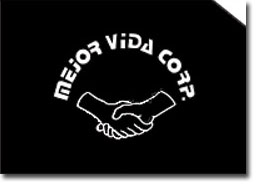Itaú Cultural,
Aug 11, 2004 - Oct 13, 2004
São Paulo, Brazil
Artificial Emotions 2.0
by Virginia Gil Araujo
The curators’ choice expands the concept of divergence by integrating the work of Eduardo Kac. Kac’s work, due to its "poetic nature" is not precisely political and is a departure for an artist who has been causing serious trouble for violating scientific autonomy in the field of genetics in the name of artistic autonomy. Although the artist has programmed a lyrical experience using the work of several authors in the creation of an artificial ecosystem which makes a plant live and develop through the emission of photons by web cams, this time he makes no objections to transgenic art the focus of which is his work; but the debate regarding extra-scientific interference in genetic properties has not stopped. Davide Grassi and Igor Stromajer (Italy/ Slovenia) launched a timely challenge with Problemarket, when they address President Lula and question him on the government’s position regarding transgenics.
We must highlight the accuracy of some works when addressing surveillance technologies - a difficulty for uninitiated audiences. Projeto Spio, by Lucas Bambozzi, which shows images produced by a camera attached on a robot circulating around the installation area, ironically reveals a "peeping tom’s view". Capturing images on video using political technologies is addressed in Dolores from 10 to 10, where Cuban born Coco Fusco simulates an interrogation room in real time. The room eerily shows a worker threatening a strike, hit and coerced by her boss.
Issues regarding Chernobyl in Unknown Quantity, by Andrel Ujica and Johannes Fischer (Romania/ Germany) are still compelling when visitors find themselves "within" a conversation between philosopher Paul Virlio and writer Steviana Aleksievich, assembled within a 3D projection. It ends with the conclusion that the treatment of public opinion around the catastrophe became known as a "knowledge accident" with the systematic neutralization of victim’s testimonies.
Antoni Muntadas presented one of the most political works, On Translation: El Aplauso do catalão/The Catalan’s Applause (1999), is a triptych projection critically investigating society’s complicity with the atrocities going on in the world.
After reality’s appeal to the conscience, more ludic works captured the audience’s curiosity. We must highlight Um, nenhum, cem mil, by Kátia Maciel, which, quoting the title of Pirandelo’s work builds virtual identities, as well as F69 by Suzete Venturelli and Mario Maciel produced at the Universidade de Brasília, which consists of a stimulating strategy game. Stimulus being the most significant aspect of "Corpos Informáticos" from Brasília, while Tania Fraga presented a playful Superfícies estimuláveis /Surfaces to stimulate.
|













